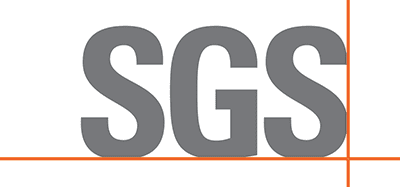SGS Group is the world’s largest company for control, testing and certification, and represents an unrivalled authority in terms of the quality of its expertise. Having existed for over 140 years, it operates in more than 180 countries, of which Serbia is only one
By possessing a valid certificate, the company proves to its customers that it is a less risky supplier, and that is the basic reason why certificates are insisted on in the EU and the developed world. The range of services that SGS Group provides is huge and expands in line with trends.
SGS has existed for more than 140 years and operates in more than 180 countries. Do world trends transfer automatically to our market or do you still adapt them to our region?
 – Certain services that SGS provides in our region, such as management system certification or product certification, are implemented according to methodologies that are harmonised at the global level. However, we tailor certain services to our region, primarily in the areas of education and advancing operations.
– Certain services that SGS provides in our region, such as management system certification or product certification, are implemented according to methodologies that are harmonised at the global level. However, we tailor certain services to our region, primarily in the areas of education and advancing operations.
Within the scope of the SGS Academy in Serbia, we’ve developed a number of courses aimed at meeting the specific demands of our clients, and as a company, we wish to thereby contribute to advancing the economic environment in our region.
How many certificates have you issued to date in Serbia and are you satisfied with that number? In which industry have you issued the most?
– SGS Belgrade, as a certification body, has so far issued more than 2,000 certificates for management systems. This is a significant number of certificates issued, especially considering the number of certificates issued by other certification bodies in the wider region.
However, we believe that the total number of certificates issued for management systems in Serbia (which can be viewed at www.iso.org / ISO Survey) should be significantly higher. Of the total, the largest number of certificates were issued in the food, pharmaceutical and construction industries.
Possessing a certificate just to meet the requirements of a tender or similar process doesn’t contribute to long-term progress
Your certificates ease the export of Serbian products and protect us from imports of poor quality products. Is certification among the first steps towards joining the EU and the developed world?
– We need to differentiate between the certification of an organisation, i.e. business system organisation, and product certification. The certification of an organisation according to certain international standards confirms that it’s able to meet the needs of its customers and stakeholders in continuity, while product certification confirms that a product is safe to use and meets the requirements of certain technical standards relevant to that product.
We are witnessing accelerated changes to operations. Customers and stakeholders are increasingly demanding, and in this sense, organisations are increasingly focused on establishing a business risk management system with a particular focus on the “supply chain”.
By possessing a valid certificate you confirm to your customers that you are a less risky supplier for them, and that’s the main reason why certificates are insisted on in the EU and the developed world. Among other factors, why would they take on the risks of your operations or poor product quality? It is very important that through the education process, starting from college, there is an insistence on the importance of applying international standards, because that is the framework within which our companies and their employees will have to “play” a very complex market game.